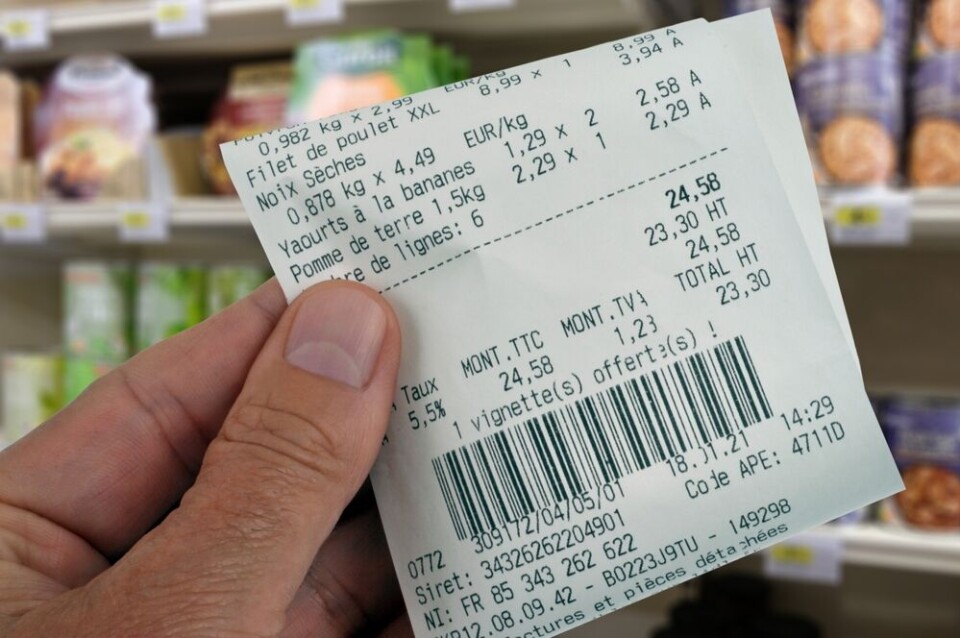-
How many Americans live in Paris - and where else are they choosing in France?
Over a quarter of all US nationals in France live in the capital city
-
Price rises for Netflix in France
The Standard (with ads) and Premium packages are increasing by €24 a year
-
Leclerc supermarkets to sell car fuel at cost price for Easter
The initiative will apply to diesel, petrol, and LPG
Why shoppers are still opting for paper till receipts in France
As many as 60% still ask for paper receipts, despite a new law making them opt-in only

France has outlawed paper receipts by default, but consumer figures suggest that shoppers still remain attached to the itemised slips.
The new law, which came into force in August 2023, means that shoppers must ask for a paper receipt if they would like one, rather than having one printed and given out automatically. The aim is to save paper and protect the environment.
Read more: French shops to end automatic printing of paper receipts
The exception is for non-perishable ‘long-term’ items with a guarantee of €500 or more. These purchases are still given a paper receipt by default.
French trade and consumer association the DGCCRF states: “In any event, the choice of whether or not to obtain a receipt rests with the consumer, while the offer of a digital receipt and the choice of transmission method remain in the hands of the retailer.”
This means that shops are free to decide whether or not they will offer shoppers a digital receipt alternative to the paper version.
More than half still ask for receipts
Yet, a new study by trade magazine LSA suggests that shoppers are still attached to paper records.
Figures from retail giant Leclerc show that more than 55% of customers asked for a paper receipt in January 2024, just four percentage points lower than the number in June 2023, before the law came into force.
At Auchan, the percentage is even higher, at 60%. Carrefour states that the percentage varies considerably at its stores, depending on location, and the average age of shoppers.
“Some of our shops, such as the one in Drancy, show that 66% of customers still want a paper receipt, compared with just 22% in Bayonne,” said Carrefour in a statement to LSA.
Young people aged 35 or under are more likely to prefer digital receipts and no paper versions, in comparison to older people aged 60 and over, the study said.
Similarly, some people do not want to give their email address out in order to receive the digital version, because they fear being inundated with marketing messages if they do (despite this being an illegal use of data under European GDPR laws without explicit consent).
Managing money
People are still choosing to use paper receipts because it helps them to manage their money better, amid today’s high inflation rates and rising cost of living, Carrefour said.
“Clients remain very attached to their printed receipt, which helps them to stay on top of their spending, particularly within the context of high inflation,” it said.
These findings align with those of another study from July 2023, by retail trade association Perifem. This found that 81% of shoppers in France would continue to ask for a paper receipt for food shopping, and that 89% would ask for one when buying gifts.
Yet, the same poll found - somewhat contradictorily - that 73% of French people were in favour of getting rid of paper receipts as default.
Another survey, undertaken in January by digital receipt provider Yocuda, found that 43% of consumers prefer digital till receipts, but 55% said that they were aware of the ecological benefits of reducing them.
Read also
How do we prove purchases if till receipts are disappearing in France?
























